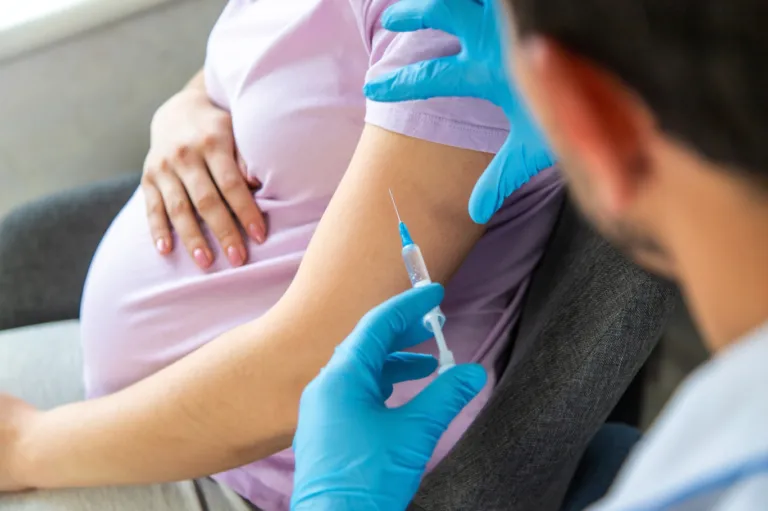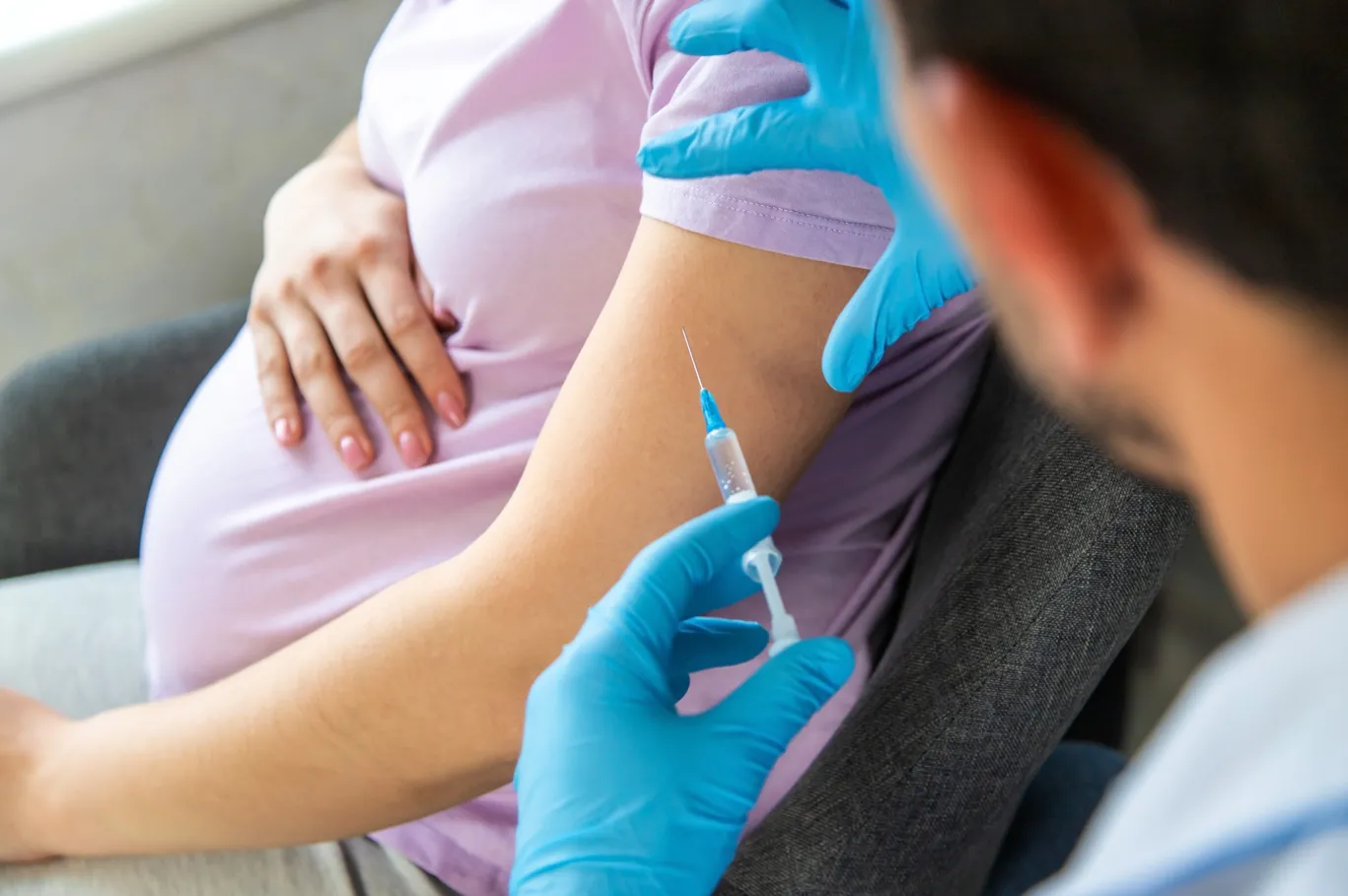Some mums-to-be are concerned about vaccinations during pregnancy. However, it's worth knowing that some of them are not only safe, but even recommended during pregnancy. Find out when is the best time to get a flu jab during pregnancy.
Is the flu vaccination safe during pregnancy?
The flu vaccine is recommended for all pregnant women. It is one of the non-live vaccines that are safe during pregnancy. They contain inactivated viruses or fragments of viruses such as proteins. Given the risk of contracting influenza during pregnancy, the expectant mother should be informed of this possibility by her gynaecologist and make a decision about vaccination. As the virus mutates, the vaccination should be repeated annually.
When should you be vaccinated against flu during pregnancy?
The flu vaccination is safe in every trimester of pregnancy and in the period before conception. It is especially recommended in the 2nd or 3rd trimester. A lot also depends on the infection season. As a rule of thumb, it is advisable to get the flu vaccine before the peak of illnesses, i.e. from October to December. The peak season for flu is between January and March.
Why is a flu vaccination so important during pregnancy?
The body’s immunity decreases during pregnancy. The expectant mother can therefore catch flu more easily than before pregnancy. She is also exposed to a higher risk of complications following flu. Babies born to women who have contracted influenza during pregnancy have a higher risk of having a lower birth weight or being born prematurely. Influenza is particularly dangerous for patients with heart problems. In addition, the baby receives antibodies from the mother through the vaccination and is protected against infection with the disease in the first few months of life.
Recommended vaccinations during pregnancy
Three vaccinations are currently recommended for pregnant women: a combined vaccination against whooping cough, tetanus and diphtheria as well as against influenza and COVID-19. These vaccines are considered safe during pregnancy. They are inactivated vaccines. This is because live vaccines such as those against measles, mumps and rubella cannot be vaccinated during pregnancy. In their case, you must wait four weeks before planning a pregnancy.











